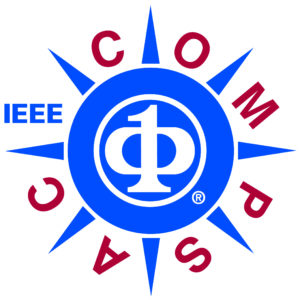Special Plenary Session
Building an Inclusive Metaverse: Opportunities, Challenges, and Strategies for Diversity, Equity, and Inclusion (DEI)
This panel discussion will explore the potential of the metaverse as a platform for advancing DEI in digital development efforts aimed at creating a better future. Panelists will discuss the opportunities presented by the metaverse for promoting diversity, empowering marginalized communities, and fostering inclusive virtual environments. They will also examine the challenges and barriers to achieving DEI within the metaverse, including issues related to accessibility, representation, algorithmic bias, and online harassment. Additionally, panelists will share strategies, best practices, and innovative approaches for building an inclusive metaverse that prioritizes social responsibility, ethical design, and equitable access to digital resources and opportunities. Through interactive discussions, the panel will highlight the importance of collaboration, advocacy, and collective action in shaping a more inclusive and equitable digital future within the metaverse.
 DEI Session Chair
DEI Session Chair
Jean-Luc Gaudiot currently holds the position of Distinguished Professor in the Department of EE and CS at the University of California, Irvine, where he previously served as Department Chair for six years. During his tenure, he played a pivotal role in significantly elevating the rankings of both the CE and EE programs in the US News and World Report®. Dr. Gaudiot’s academic journey includes earning a PhD in Computer Science from UCLA in 1982. As the 2017 President of the IEEE Computer Society, he spearheaded numerous financial reforms, initiated initiatives on Cybersecurity and Blockchain, while prioritizing DEI efforts.
At UC Irvine, he served as the EECS DECADE Mentor, where he actively contributed to fostering a DEI educational environment for students. Dr. Gaudiot’s extensive contributions to the field of EE and CS are reflected in over 300 articles and books. His research endeavors have been supported by prestigious organizations including NSF, DoE, DARPA, and various industrial partners. He is honored to hold Fellow status in both IEEE and AAAS, as well as being recognized as an IFIP Silver Core Member and a Professional Member of Eta Kappa Nu.
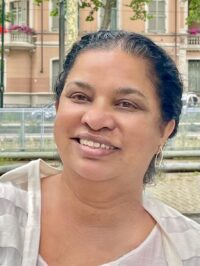
Panel Moderator
Jeewika Ranaweera is an engineer, author, illustrator, inventor, and sustainability champion. She is an active volunteer for IEEE Future Directions, IEEE Women in Engineering (WIE), IEEE Electron Device Society, and IEEE Engineering Accreditation Activities. She is a co-chair of the IEEE Metaverse initiative and a member-at-large for IEEE WIE.
Jeewika authored an eBook chronicling her engineering journey for IEEE WIE, aiming to motivate individuals to pursue careers in STEM fields. Additionally, she illustrated the very first children’s book published by IEEE. Recognized as one of the “Women Engineers You Should Know in 2023” by the Society of Women Engineers, she has also been a prominent figure in IEEE WIE Santa Clara Valley, serving as both chair and co-chair. Her dedication earned her the “Outstanding member who promoted women in engineering” award from IEEE WIE SCV in 2020. Her outstanding contributions led to her induction into IEEE-Eta Kappa Nu as a Professional Member of the Eta Chapter of the Board of Governors in 2023.
Dr. Ranaweera is devoted to eliminating bias in AI, particularly its discriminatory impact on women and historically marginalized groups. As co-chair of the IEEE Metaverse Initiative, she actively addresses the growing digital divide arising from hardware and connectivity disparities. Her commitment is further demonstrated through her frequent tech talks, wherein she sheds light on these crucial issues.
She attained her bachelor’s degree in computer science and engineering from ISPJAE in Havana, Cuba, followed by her master’s and PhD degrees in Electrical and Computer Engineering from the University of Toronto, Canada. Throughout her academic journey, Jeewika has contributed to numerous technical journal publications and presented her research at international conferences. Her inventive spirit has resulted in the acquisition of five US Patents.
Jeewika Ranaweera’s dynamic skills, unwavering dedication to equality in technology, and numerous accolades serve as an inspiration to aspiring engineers worldwide. Through her pioneering work and tireless efforts, she continues to pave the way towards a more inclusive and innovative technological landscape, benefiting individuals from all walks of life.
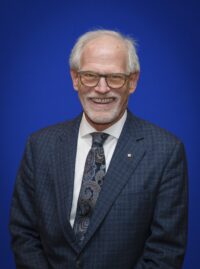
Panelist
Tom Coughlin, President of Coughlin Associates, is a digital storage analyst and business/technology consultant. With over 40 years of experience in the data storage industry, he has held engineering and senior management positions. Coughlin Associates offers a comprehensive array of services, including consulting, book publishing, market and technology reports, and the organization of digital storage and memory-focused events.
Dr. Coughlin is a regular contributor to forbes.com and various Media & Entertainment organization websites. He is an IEEE Fellow, serving as the 2024 IEEE President. He has previously served as the President of IEEE-USA, Director of IEEE Region 6, and Chair of the Santa Clara Valley IEEE Section. Additionally, he is actively involved with Storage Networking Industry Association (SNIA) and Society of Motion Picture and Television Engineers (SMPTE).
Through his multifaceted contributions, Dr. Coughlin exemplifies how a commitment to diversity and inclusion not only enriches the technology sector but also drives innovation and progress for all. For more information on Tom Coughlin, please visit www.tomcoughlin.com.
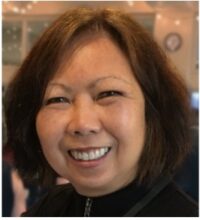
Panelist
Kathy Grise, Senior Program Director at IEEE Future Directions, plays a pivotal role in spearheading new technology initiatives and advancing diversity, equity, and inclusion (DEI) efforts within the IEEE community. In her capacity, she serves as the IEEE staff program director for various committees, including the Public Safety Technology Initiative and the IEEE Technology Navigator AI. She also oversees initiatives such as Global Semiconductors and Technology Roadmaps, while managing the digital presence team for Future Directions. Ms. Grise serves as the Technical Program Chair of the IEEE COMPSAC 2024 Symposium – Data Sciences, Analytics, & Technologies (DSAT). Her remarkable contributions earned her induction into IEEE-Eta Kappa Nu as a Professional Member of the Eta Chapter of the Board of Governors in 2023, highlighting her dedication to fostering inclusivity and diversity within the IEEE community.
Prior to joining IEEE, Ms. Grise held key positions at IBM, where she led IT infrastructure implementation and software development in support of semiconductor device modeling and characterization. Her extensive experience in technology and her dedication to promoting DEI make her an invaluable asset to both IEEE Future Directions and the broader technology community. Ms. Grise is a graduate of Washington and Jefferson College and is an IEEE Senior member.
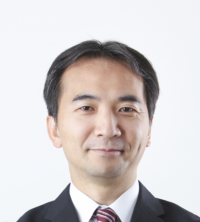
Panelist
Hironori Washizaki is a distinguished Professor and the Associate Dean of the Research Promotion Division at Waseda University in Tokyo. With a passion for fostering diversity, equity, and inclusion (DEI) in the field of technology, he serves as a Visiting Professor at the National Institute of Informatics and an Advisor at the University of Human Environments. Additionally, he holds pivotal roles as an Outside Director at eXmotion Co., Ltd., and an Advisor at System Information Co., Ltd.
Dr. Washizaki earned his doctoral degree in information science from Waseda University in 2003, marking the beginning of a remarkable career dedicated to advancing the field. His leadership extends to the IEEE Computer Society, where he serves as President-Elect for 2024 and will take the helm as President in 2025.
At the forefront of innovation, Dr. Washizaki spearheads the evolution project of the Guide to the Software Engineering Body of Knowledge (SWEBOK), demonstrating his commitment to shaping the future of software engineering. His extensive contributions include serving as Convener of ISO/IEC/JTC1 SC7/WG20, Chair of IPSJ SIGSE, and Chair of JUSE SQiP, among others.
However, it is Dr. Washizaki’s unwavering dedication to DEI that truly sets him apart. Since 2021, he has been a vital member of the IEEE Computer Society Board of Governors, actively supporting DEI initiatives such as the Diversity & Inclusion Fund. Furthermore, he leads the IPSJ SIGSE Diversity Working Group, driving impactful research on gender and diversity in software engineering, as evidenced by his work at APSEDEI 2022.
Dr. Washizaki’s commitment to DEI extends beyond academia into practical applications, as showcased by his research in ICT education, notably featured in Education Sciences, 13(5) 2023. Through initiatives like the SmartSE program, encompassing IoT, AI, software engineering, and business, he strives to create inclusive spaces where individuals from diverse backgrounds can thrive. In summary, Dr. Hironori Washizaki’s professional journey is not only marked by academic excellence and leadership but also by a profound commitment to fostering DEI in technology, ensuring a brighter and more inclusive future for all.
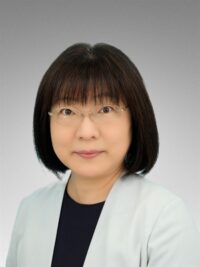
Panelist
Yoshiko Yasuda, an alumna of Waseda University with a B.S. degree in Electrical Engineering (1991) and a Ph.D. in Engineering (2005), embodies a dedication to advancing technology alongside fostering diversity, equity, and inclusion (DEI). Throughout her illustrious career at Hitachi Ltd.’s Central Research Laboratory, Dr. Yasuda has been a driving force in various technological domains, from parallel computing systems to cloud computing and artificial intelligence. As a senior project manager, she continues to lead numerous R&D projects focused on data science and AI technologies since 2020.
Beyond her technical contributions, Dr. Yasuda is deeply engaged in nurturing the next generation of talent. Internally at Hitachi, she spearheads training programs for young researchers, emphasizing digital technologies and IT architecture, while externally, she shares her expertise through lectures at Hosei University and Tokyo Metro Super Science High School.
Dr. Yasuda’s commitment to DEI extends beyond education. As an active member of the Youth Committee of the Engineering Academy of Japan (EAJ) and associations like IEEE Computer Society and Women in Engineering, she champions the development of young engineers and promotes diversity in technology. Her involvement in the Technical Community on Services Computing underscores her dedication to fostering an inclusive environment within her professional sphere. Through her multifaceted efforts, Dr. Yasuda exemplifies how advancing technology and embracing diversity go hand in hand towards creating a more equitable future for all.

